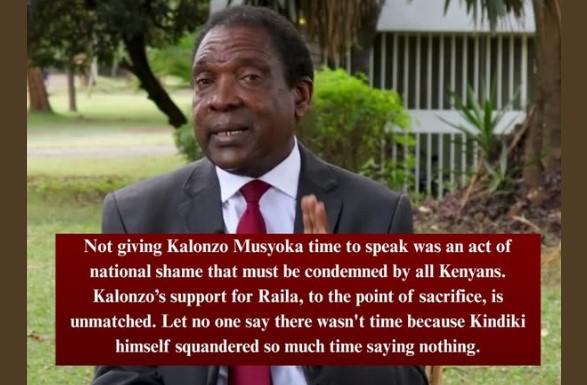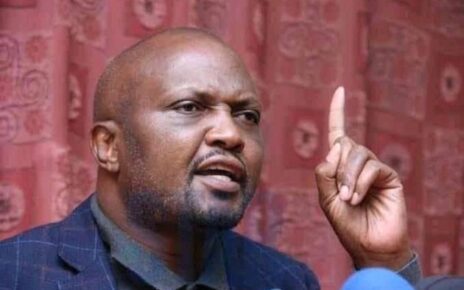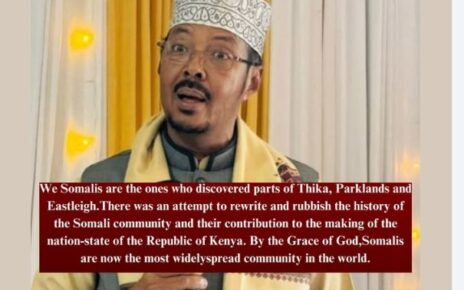Political analyst Herman Manyora has condemned the decision to deny Wiper Party leader Kalonzo Musyoka an opportunity to address mourners during the late Raila Amolo Odinga’s State Funeral at Nyayo Stadium, terming it an “act of national shame.” According to Manyora, the move was disrespectful not only to Kalonzo but also to the history of political partnership and sacrifice that defined his relationship with the late opposition leader.
“Not giving Kalonzo Musyoka time to speak was an act of national shame that must be condemned by all Kenyans,” Manyora stated. He further emphasized that Kalonzo’s loyalty and unwavering support for Raila over the years should have earned him the respect of being recognized and allowed to pay his final tribute. “Kalonzo’s support for Raila, to the point of sacrifice, is unmatched. Let no one say there wasn’t time because Kindiki himself squandered so much time saying nothing,” he added, in a sharp rebuke of the event’s organizers and the government protocol that managed the program.
Manyora’s remarks have resonated widely across the political landscape, with many Kenyans agreeing that Kalonzo’s exclusion reflected poorly on the spirit of national unity that Raila stood for. For years, Kalonzo Musyoka had been one of Raila’s most loyal political allies, consistently standing by him through successive elections and political struggles. His steadfastness, even when it meant compromising his own ambitions, earned him a reputation as one of the most selfless leaders within the Azimio la Umoja coalition.
Observers have noted that Raila and Kalonzo’s relationship was built on mutual respect and shared ideals for democracy, justice, and unity. Denying Kalonzo the opportunity to speak during Raila’s funeral, therefore, felt to many like erasing a critical chapter in Kenya’s political history. Manyora’s criticism highlighted not just a matter of protocol, but a deeper concern about the erosion of moral and political decency in national events.
Many Kenyans have since taken to social media to echo Manyora’s sentiments, with some describing the incident as “humiliating” and “politically insensitive.” Others believe it revealed divisions within the Azimio coalition, as factions begin to position themselves for leadership in the post-Raila era. Nonetheless, Manyora’s powerful words have reminded the nation of the need to uphold respect, fairness, and gratitude toward those who have contributed immensely to Kenya’s political journey.
Herman Manyora’s condemnation of Kalonzo Musyoka’s exclusion stands as a call for reflection among Kenya’s political class. Raila Odinga’s funeral was meant to unite the country in mourning and celebration of a national hero, not to expose cracks or sideline those who stood by him. As the dust settles, Kenyans are left to ponder whether the ideals that Raila lived and died for—respect, justice, and unity—will continue to guide the nation or be lost in the noise of political rivalry and protocol missteps.



